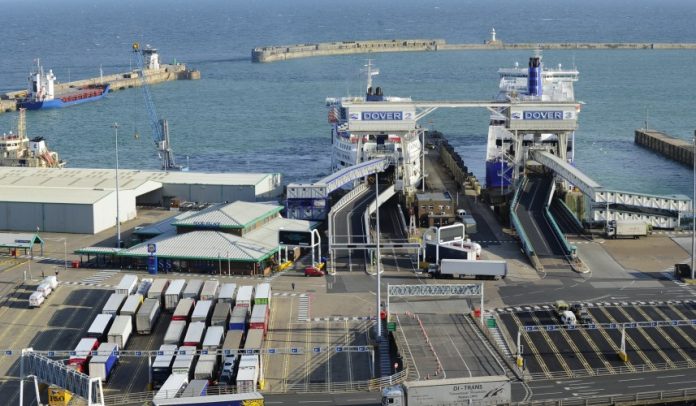Logistics UK, the former Freight Transport Association, has branded the UK Government’s response to the closure of the border between the UK and France for two days as embarrassing.
In a letter to the transport minister Lord Agnew, Logistics UK said that the response to the closure of the French border on 21 December was chaotic and called for an urgent review of traffic management and welfare arrangements for HGV drivers following the scenes of disorganisation over the period of the closure and immediately afterwards.
Elizabeth de Jong, Policy Director at Logistics UK, said that with the end of the Brexit transition period approaching, it is critical that new arrangements are urgently put into place so that if similar delays are experienced, following the introduction of new customs procedures on 1 January, drivers are able to access all the necessary facilities.
“That drivers should have to spend two days at the side of the road, without adequate toilet facilities or the immediate provision of hot food, was a national embarrassment,” said de Jong, “and the need to rely on the generosity of the charities, businesses and local residents and the support of the Armed Forces must not be repeated.”
According to Logistics UK this country relies on the import of fresh produce at this time of year and any repeat of the pre-Christmas chaos could mean that the European hauliers and drivers the UK relies upon to deliver that produce may be reluctant to drive to the UK.
“With new customs procedures in place from 1 January 2021, it is vital that all the systems needed to support hauliers as they move across our borders are in place and in full working order. From 1 January, the industry will need regular, nationwide real-time information feeds from the government on the status of all ports, combined with an early insight where traffic is building – this will highlight where problems are likely to occur and help delays to be mitigated.”
Meanwhile, Ocean Network Express (ONE) has issued a reminder that following the end of the Brexit transition period at 11pm (UK time) on 31 December the UK will no longer be subject to EU import and export regulations.
That means “For all cargo that is loaded in the UK or passes through the UK following load calls in or outside EU prior to the call at the UK port, an Entry Summary (ENS) Declaration becomes applicable where the vessel service has subsequent calls at EU ports.”
ONE offers the following example: Qingdao-Pusan-Shanghai-Ningbo-Yantian-Singapore-Rotterdam-Southampton-Le Havre-Hamburg-Rotterdam-Singapore.
“For this example, service ENS is applicable for entry into the EU via Rotterdam after the Far East load calls as well for the re-entry into the EU at Le Havre following the vessel call at Southampton.”
Furthermore, ONE advises, “The ENS declaration should contain data for cargo discharging as well as cargo remaining on board at the EU ports. As a result, the documentation cut off time for cargo loaded in the UK is set at 48 hours prior to vessel arrival at the UK port. From 1 January, 2021, UK customs will continue to demand receipt of an ENS declaration for all cargo discharged, transhipped or remaining on board at a UK port for cargo originating from outside the EU. From 1 July, 2021, cargo to the UK (excluding Northern Ireland) originating from within the EU requires mandatory ENS declaration.”
Northern Ireland will remain part of the EU’s Safety and Security Zone and will be subject to standard EU-ENS rules.
“This means that an EU ENS declaration is applicable for cargo traffic between Southampton and Belfast, whereas the UK-ENS becomes applicable for traffic between Northern Ireland and UK ports. UK customs have set up the Safety and Security (S&S) platform for the receipt of these ENS messages.”
For these UK-ENS messages, the same 24-hour rule (declaration of cargo loaded 24 hours prior to vessel load) applies as for EU-ENS and documentation cut-off timing is 48 hours prior to vessel departure.
A UK-ENS, where Economic Operator Registration and Identification (EORI) numbers are unavailable for consignees, “full address details are mandatory for cargo discharging in the UK and therefore will have to be included in the shipping instruction.”
Nick Savvides
Managing Editor







